toyotaresearchinstitute
Latest
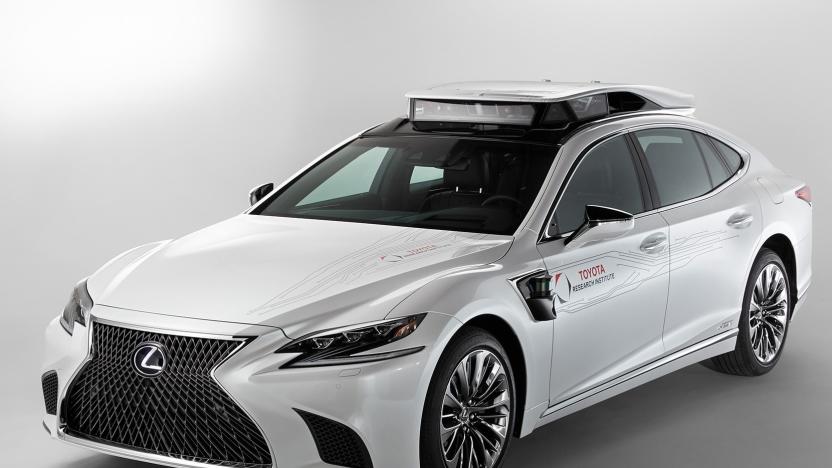
Toyota's latest self-driving test car is smarter than ever
We got a look at Toyota's first self-driving research vehicle way back during CES 2013, and now the company will introduce the updated P4 platform at CES 2019. It upgrades on the second and third generation cars with the introduction of Lexus' latest flagship sedan, the LS 500h, but it doesn't stop there. The computer managing its technology has not only become more powerful than ever before, but it's also smaller so it tucks directly against the rear seat, and it only requires power from the hybrid battery, using a 12v battery of its own just as an emergency backup.
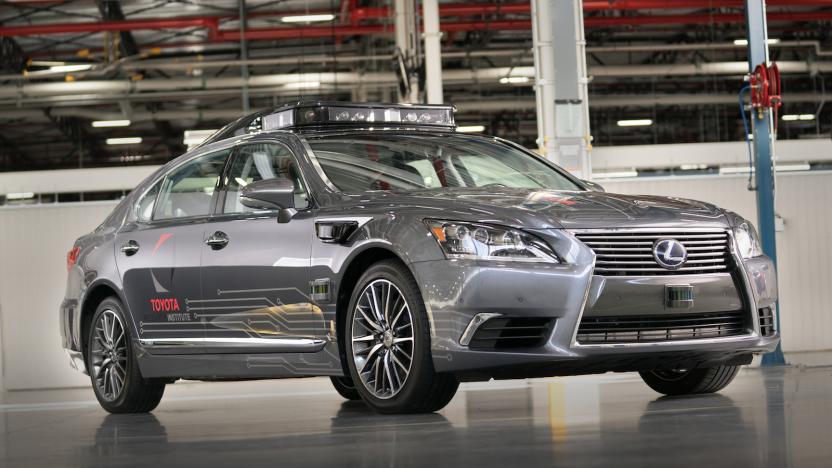
Toyota's new self-driving test car can better recognize small objects
Toyota Research Institute (TRI) will debut the latest version of its automated driving research vehicle at CES next week. TRI had three major goals with this latest model and Platform 3.0 incorporates them all into a car with more perception capabilities, a design that's easier to produce at scale and a much sleeker look. "To elevate our test platform to a new level, we tapped Toyota's design and engineering expertise to create an all-new test platform that has the potential to be a benchmark in function and style," TRI CEO Gill Pratt said in a statement.
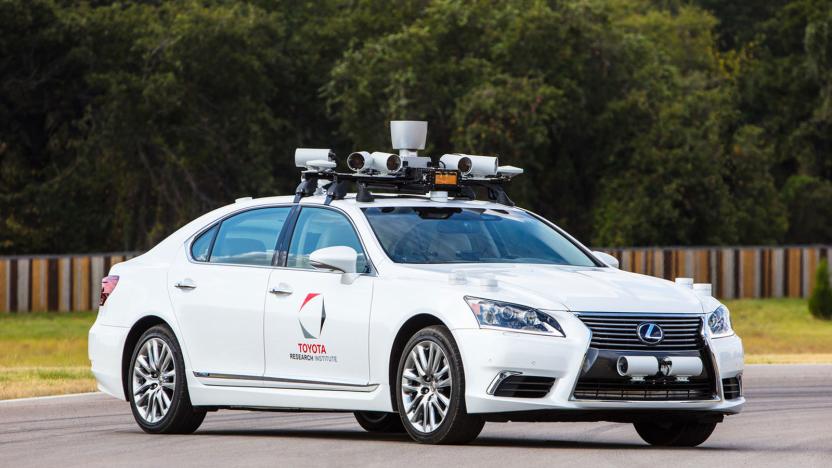
Toyota will test self-driving cars at tough California proving ground
Now that Toyota has unveiled its latest self-driving car prototype, it needs a good test course to put the vehicle through its paces... and thankfully, there's already one lined up. Toyota has struck a deal to test its autonomous vehicle tech at GoMentum Station, the California test course known for its tough, realistic conditions. The automaker's cars will be subjected to "extreme driving events" that wouldn't be safe to test on public roads, and will experience a wide variety of conditions that include bridges and tunnels.
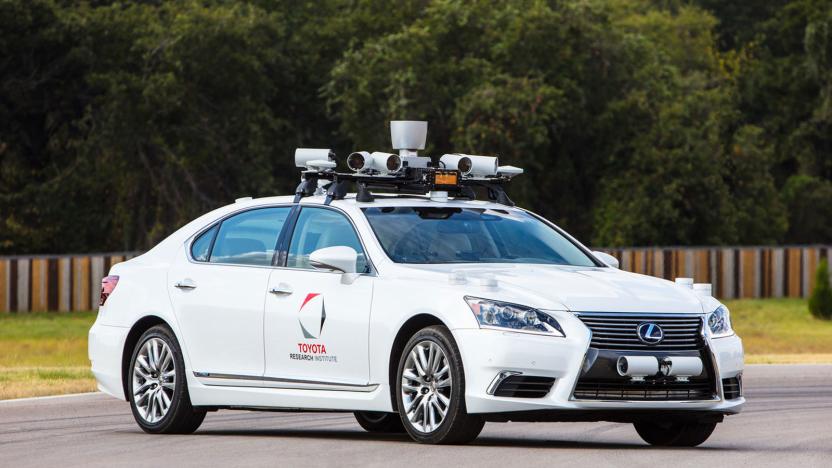
Toyota's latest self-driving car is more aware of its surroundings
Toyota barely unveiled its second-generation self-driving testbed half a year ago, but it's already back with an update. The automaker is showing off a Platform 2.1 research vehicle that has made some big technology strides... including some unusual design decisions. The biggest upgrade is an awareness of its surroundings: the modified Lexus is using new lidar from Luminar that not only sees further and maps more data but has a "dynamically configurable" field of view that focuses its attention on the areas they're needed most. There are also new deep learning AI models that are better at spotting objects around the car as well as predicting a safe path.
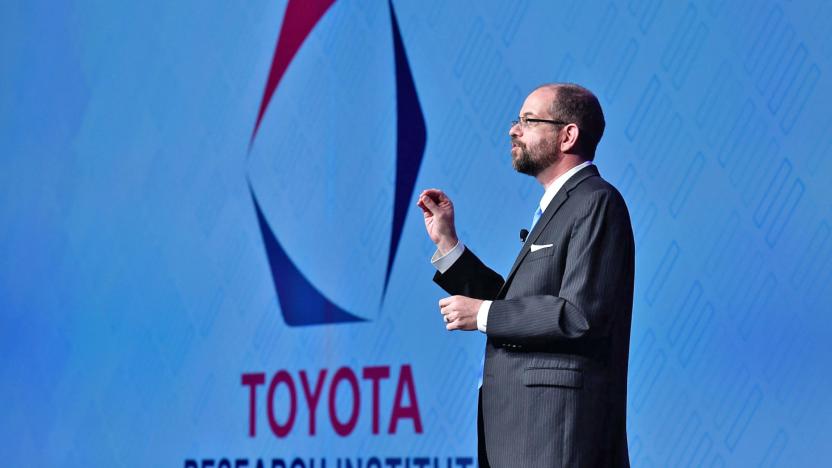
Toyota's $100 million fund will back AI, robotics startups
Today, Toyota announced the launch of Toyota AI Ventures, a new venture capital subsidiary focused on startup tech companies working on artificial intelligence. The fund has received an initial $100 million from the Toyota Research Institute (TRI), an AI-, robotics- and autonomous car-focused initiative created in 2015.

Toyota is using AI to hunt for new battery materials
Toyota has turned to artificial intelligence for help in the hunt for new advanced battery materials and fuel cell catalysts. The Toyota Research Institute (TRI) is investing $35 million into the project and is teaming up with various institutions and companies, including MIT and Stanford University. According to the automaker's research devision, materials development usually spans decades. By using artificial intelligence techniques, such as machine learning, the researchers can reduce the time it takes to conjure up new materials it wants to use for future zero-emission and carbon-neutral vehicles.



